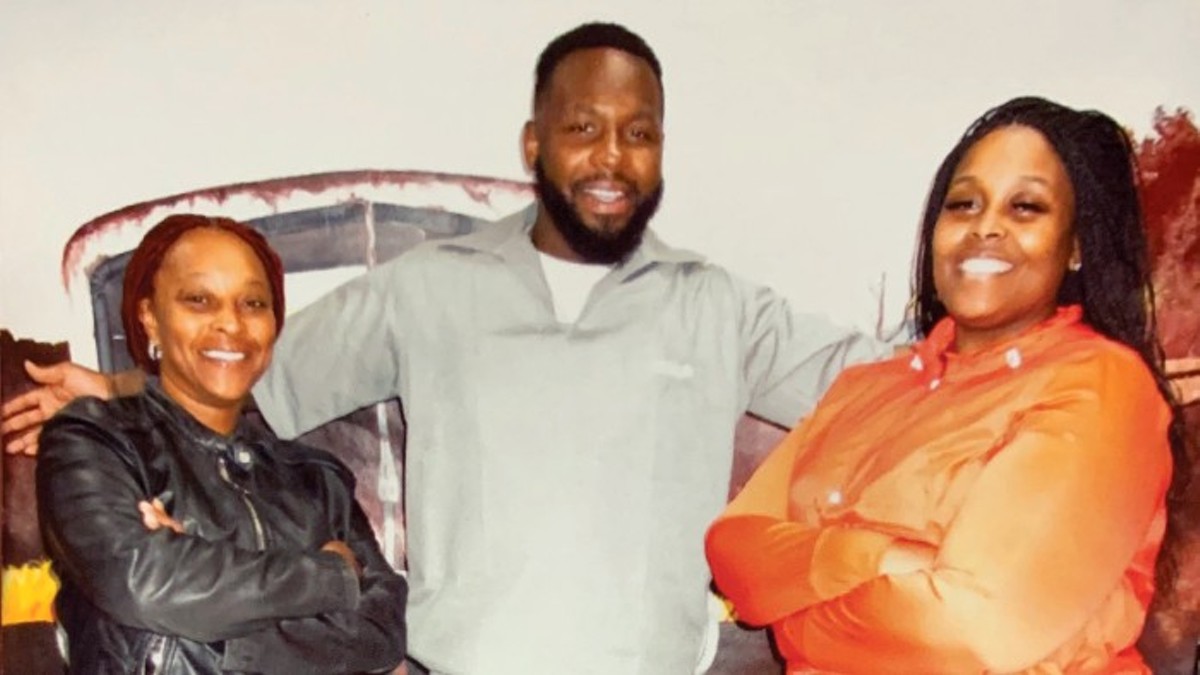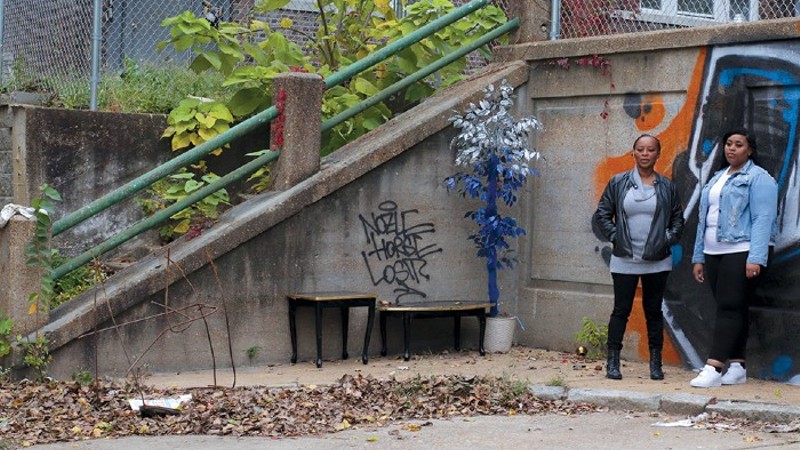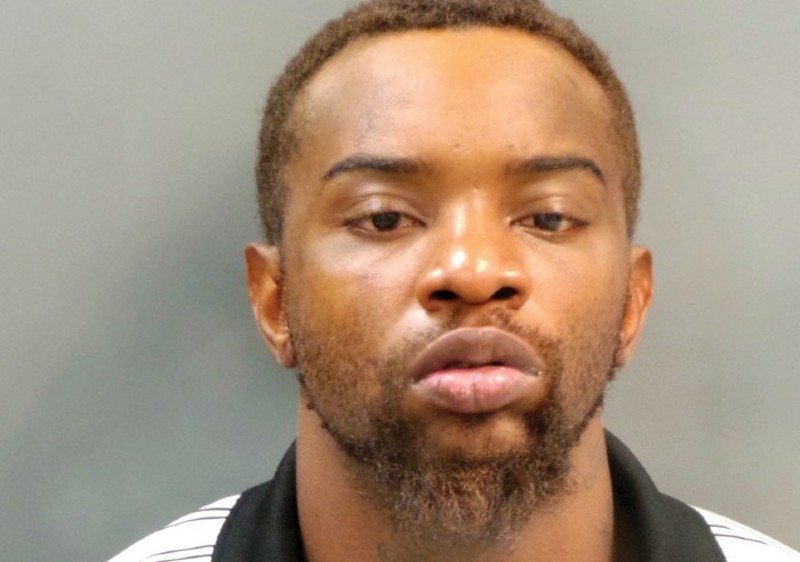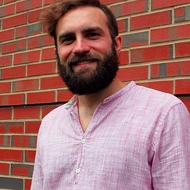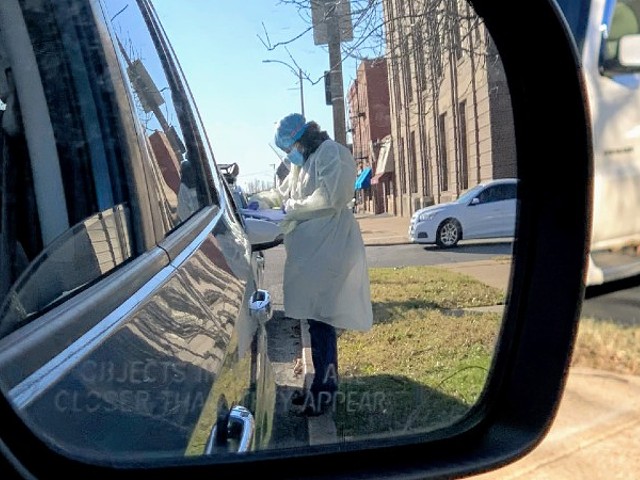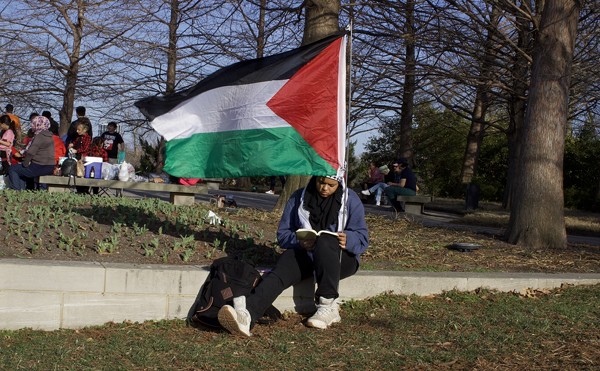After his release in 2009, at nineteen, he was determined to not go back. He moved in with his mom, who was now living near Dellwood, far away from Shelton Buchanan and the dead end of Oregon. His dad was "heavy into drugs." Key never really got to know him, but in north St. Louis County, he had his mom as well as an uncle and five cousins to keep him out of trouble.
On April 15 of that year, the day Shelton Buchanan was shot, Key had been a free man for less than a month. He says he stayed home that night, as he did most nights, with his family.
In south city, Shelton Buchanan was also at home. His friend Dominique Darden came over to get some pills from him. But, according to testimony Buchanan would later give, he had already tried the pills by the time Darden arrived and realized they were fake. So Darden didn't stay long. But 45 minutes later, he was back. Now there were two men in hoodies standing on the sidewalk outside Buchanan's house. Their hoods were pulled tight over their faces. One of them asked Darden what time it was. Darden went up to Buchanan's front door and knocked. Buchanan answered, and shots rang out from the sidewalk.
"Oh shit!" Darden yelled.
He and Buchanan ran into the house for cover. Darden was unscathed. Buchanan was hit in the side. On the phone with the 911 operator, in the ambulance with EMTs, at the hospital with police — again and again Buchanan used what he believed to be his last breaths to tell whoever would listen that Felix Key tried to kill him.
Not long after, Key went to the probation office in north St. Louis County to check in with his parole officer. He was placed under arrest and charged with three felonies: first-degree assault, armed criminal action and unlawful use of a weapon.
The Trial
Dramon Foster, now a lawyer in private practice, was the public defender who represented Key at his trial in January 2011. Foster was assigned the case at the last minute when Key's original public defender realized he had a conflict because he was already defending Buchanan in a separate case.
At the time, there was a public defender shortage, and Foster was already overloaded. He already had more than 200 clients in his caseload. But he still remembers Key.
It was a tough case from the start.
Dominique Darden had supposedly identified Key in a photo lineup and, most importantly, prosecutors had Buchanan's so-called "dying declaration." In the moments after he had been shot, he repeatedly claimed the gunman was his old enemy. Normally, witnesses' accounts of statements like that would be considered hearsay and not admissible. But the legal theory regarding dying declarations is that someone who has been seriously wounded and believes they are going to die has no reason to lie. That's why such declarations are not only admissible but often carry a special gravitas in courtrooms.
Foster says the prosecutor, John Mantovani, was at an advantage because he had Buchanan's "dying words" as well as the living Buchanan to testify.
However, as a witness for the prosecution, the alive Shelton Buchanan was far less forthright than the Shelton Buchanan who thought he was about to die. One person who attended the trial said that Buchanan seemed high and kept nodding off while on the stand. According to the transcript, he frequently answered in one-word responses, occasionally replying "yes" or "no" to questions that weren't yes-or-no questions. Countless times attorneys for the prosecution and defense asked him to please speak up.
"He didn't seem all that believable," Foster says. "He was evasive. He wasn't being as straightforward as you'd expect a true victim to be. He was withholding information. If he just wanted the whole truth to get out, it didn't make any sense why he'd be so hard to work with."
At one point during cross-examination, Foster asked Buchanan, "You actually knew of more than one person who would retaliate against you that day?"
Mantovani objected.
The judge called both lawyers to the bench and, after a brief back-and-forth, decided that Buchanan didn't have to say whether anyone other than Felix Key might have wanted him dead.
"Felix would have been more of an enemy than the guy who actually shot him," Foster says. "As crazy as that sounds."
Foster says that he believes Buchanan feared for his family if he named the person who actually shot him. Instead, he used the opportunity to get back at Key.
Darden, the other man present when Buchanan was shot, testified as a witness for the prosecution but did little to support the prosecution's theory of the case.
After the shooting, he was taken to the police station where he gave an officer a deposition in which he stated that he couldn't identify the shooter beyond the fact he was wearing jeans and a blue hoodie.
Then, a little before midnight the day of the shooting, a detective showed Darden a photo lineup of possible suspects, including Key. Darden circled Key's photo, initialing and dating the sheet.
However, when Darden was questioned during the trial about the photo lineup, things took a left turn.
"Is that the person who you believed you saw shooting the weapon?" Mantovani asked, referring to the photo lineup in which Key's picture was circled next to the initials DD.
"I mean, just off basically a guess," Darden replied.
"You just made a random guess?"
"That's who I thought I seen."
Later, Mantovani tried to get Darden to clarify. "So, Mr. Darden, you are saying this was a complete guess. Is that your trial testimony today?"
"Yes."
Under cross-examination by Foster, Darden's story only became more convoluted. Foster told me that in a pre-trial deposition Darden stated under oath that a detective had tried to steer him toward Key's mug shot in a photo lineup, suggesting that the man who shot Buchanan was somewhere near the top corner of the six-photo array. After the prompt, Darden circled and initialed Key's photo.
However, when Foster asked Darden to recount at trial what he'd said in the deposition about the detective's heavy-handed tactics, Darden wavered. He wouldn't confirm that the detective had influenced his selection of Key in the photo lineup. But he wouldn't say that hadn't happened either.
"Is it your testimony that the detective said, 'He's up here somewhere?' Is that what the detective said while he was pointing at the picture?" Foster asked.
"It's been so long. I don't remember," Darden replied.
"You specifically recall the detective referring to the top row as opposed to the bottom row?"
"I'm not sure, man."
The transcript continues on like this, with Foster trying to get Darden to affirm what he already said in the deposition and Darden stating that he doesn't remember the deposition, despite a copy of it being in the courtroom. The judge eventually told Foster he needed to move things along. "Are we going to sit here until five o'clock with this, or what are we doing?" the judge asked.
After that, Foster took a different tack, asking Darden if he would have circled Key's photo if the officer had not been in the room.
"I forgot," Darden said. "If I circled the photo. I don't know."
"You thought you had to circle [Key's] photo because of the detectives in the room?"
"I don't know. I go through stuff like this there's not a lot I can do."
"That means you felt you had to because of who was in the room with you?"
"Yes."
In an interview, Foster says it's strange that Darden would not repeat at trial what he had already said under oath in the deposition.
"There's no reason for Darden to get tripped up over that," Foster says. "For an officer to implicate Felix, and for Darden to not come out and say that's what happened, that shouldn't happen."
Mantovani declined to comment for this story. He is now an assistant United States attorney for the Department of Justice.
Later in the trial, Buchanan was back on the stand, and Foster again asked him if he knew anyone who may have wanted to "retaliate" against him on the day he was shot. This time, the prosecution didn't object. Buchanan responded that "yeah," he did.
There were other problems with the trial. At one point, a juror approached the judge and said that during arguments he realized he knew both Shelton Buchanan and Dominique Darden. Not by name, but he recognized them when they took the stand. The two, the juror said, "were run out of my neighborhood for pushing drugs. And I have people I know who know him, too. They're after him."
Despite Buchanan's shakiness on the details, his testimony had ultimately been consistent on the main point: From the ambulance to the hospital to the courtroom, Buchanan said that Felix Key was the man who shot him. The jury bought it, returning a guilty verdict after the second day of arguments.
In March of that year, Key was sentenced to 28 years in prison. A few months later, Buchanan started calling Key's mom to tell her how sorry he was.

